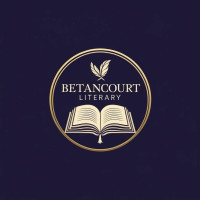So, you want a critique?

By G. Miki Hayden
Instructor at Writer's Digest University online and private writing coach
firstwriter.com – Saturday May 2, 2020
You asked for it. You may even have paid for it. But you still cringe when you open the emailed result of the critique and begin to read. You wanted to hear that your novel is great and you’re an astonishing writer, yet that’s not what the words on the screen are saying to you... But here are some ideas to let percolate in your mind when you’ve received what you wanted—some honest criticism.
Of course we all have blind spots where self-awareness is involved. We think our writing is smooth and sophisticated, but our critique partners have marked up all the awkward language on our pages. Or is that just their opinion?
Having someone be brutally honest with us might be exactly what we’ve needed in order to take the next step forward, to send out a manuscript that has some credibility. If all we’ve had are critiques from friends afraid to hurt our feelings, then maybe being a little crushed by strangers, paid or unpaid, is a necessary part of our becoming better writers and realizing our dreams.
But knowing when to accept the comments that dismiss the genius of our work or to go on in what might be ignorant bliss is something we first have to consider. Should we accept a critique that stings?
Don’t Jump to Conclusions
First of all, don’t decide right away to merely dismiss what has been said. As we should with anything we ourselves have written before we look it over again, we ought to let the critical commentary rest. Tomorrow we might read the critique differently. Did we react defensively on first reading, perhaps in anger? Tomorrow the words might not seem so harsh.
Let’s take a deep breath. Who gave us this drubbing, anyway? Was this assessment from a professional, someone who often reads the type of material that we write? Is the person an agent or an editor? Do they like science fiction, mystery, literary fiction, or whatever it is that we write? Maybe their opinion is well informed. Or maybe their reaction comes down to a matter of personal taste.
Possibly the problem isn’t the story we’re telling but something about the writing that the person evaluating the work points to repeatedly. Hmm. Does the critiquer say the writing can be sharper, more boiled down? Or that the sentences starts are weak—something I often see in writers’ work and that I point to very specifically. And yes, that’s so common that I believe most writers merely think of what they do as normal writing style. (It’s normal, yes, but not at all optimal.) If the criticisms will help us make the writing tight and more on point, then they’re worth a listen.
How About a Second Opinion?
Now maybe try for another evaluation. Might we have some Beta readers lined up? Other critique partners? Have we received a critique from a writing site such as firstwriter.com? Yes, sometimes spending a little money on a critique can pay off in improving our writing or at least satisfying ourselves that we understand what others see. Are we in a class or a writing group of some kind? We can try to recruit other writers—trade critiques.
Critiques are extremely important. But honestly, we don’t want to rewrite an entire novel based only on one critique, even if that one is from an agent who says they’ll take us on if only we kill a different character in chapter nine and make the protagonist a villain. If we receive several critiques, we can judge the worth of each more objectively.
Often critiques will be contradictory, which in itself will tell us something important—the problem isn’t just in our manuscripts—the differences in opinion are at least somewhat personal to those throwing in their four cents or their dime. If, however, two or three people say the same thing, they might be onto something valid. Further, a critique that confirms an issue we ourselves suspect regarding the writing gives us another reason to pay attention.
I’ve had a number of clients who have paid for brief critiques from agents based on only a few pages. The critiques were honest but pretty much all the same in tenor. Because the agents were being paid (through a specific program for writers), each of the readers (the agents) seemed to feel they had to find a lot of issues with the writing. And maybe every piece of work did have elements that would make the pieces unsellable, but basing the conclusion as to a novel’s worth on five pages can be questionable.
At any rate, the critiques of client work from all the different agents were in the same tone—why this manuscript won’t succeed. Having myself worked with the writers on every one of the pieces, I had my own opinion founded on a somewhat more moderate outlook. But agents, due to the nature of their function in publishing, are geared to reject potential clients as quickly as possible. They receive hundreds of queries, partials (50 pages or so), and full manuscripts a week. They can’t take more than a couple seriously over that short time. So in terms of critiquing, paying for a look at your work by the agent based on five pages may be of value, but it also may give a false negative picture of the project per se. Before we seek review by agents, maybe we simply need to work on the book for a while (just a thought).
Of course, I might give some weight to an agent’s opinion.
What Else Might We Do?
If we can find a trusted critique partner writing in the same or a similar genre, more power to us. Someone who is willing to help us out (and we they) in detail will be a jewel. Feedback to and from such an advisor can help us pinpoint what is and what isn’t on target and suggest ways to counter the difficulty. Beta readers who aren’t authors but who are avid readers can help us spot some glitches that can trip our audience up in the reading. All in all, we may receive comments that can be quite helpful.
When should we pay for a professional review and possibly a line edit? Probably when we’re stuck and need some help, when we’re too timid to approach potential Beta readers (and don’t trust them for good advice), or when we’re at the point of actually beginning a campaign of submitting the novel to lists of agents. If we know that we need someone to give us a broader outlook on the work as it connects up with the publishing world, and even if we don’t yet realize that the ground-level writing itself isn’t what it could be, if we’re passionate about the piece and about being published, we might pay for some help. (Worth considering.)
In the end, of course, we have to go with our instincts. After all, the people critiquing us have their own writing philosophies and backgrounds, which may not match ours. Critiques by their very nature are subjective. We need to create the story and type of material that we want to write and in our own voices. Some publisher large or small may like what we’re dishing out. Let’s go for it.
About the Author
G. Miki Hayden is a short story Edgar winner. She teaches a mystery writing and a thriller writing and other writing classes at Writer's Digest online university. The third edition of her Writing the Mystery is available through Amazon and other good bookshops. She is also the author of The Naked Writer, a comprehensive, easy-to-read style and composition guide for all levels of writers.
Miki's most recent novel out is Respiration, the third book in her Rebirth Series. The New York Times gave her Pacific Empire a rave and listed it on that year's Summer Reading List. Miki is a short story Edgar winner for "The Maids," about the poisoning of French slave holders in Haiti.
"Holder, Oklahoma Senior Police Officer Aaron Clement is out for justice above all, even if he irritates the local hierarchy. Hayden in Dry Bones gives us nothing-barred investigation and plenty of nitty-gritty police procedure—which makes for a real page turner." — Marianna Ramondetta, author of The Barber from Palermo




 Simple record-keeping and tax deductions for writers
Simple record-keeping and tax deductions for writers What's in a name? Giving birth to your characters
What's in a name? Giving birth to your characters My writing competition success - An interview with writer, Jerry Ryan
My writing competition success - An interview with writer, Jerry Ryan Up for a challenge?
Up for a challenge? Adverbs of doom
Adverbs of doom How to Query Your Sci-Fi/Fantasy Novel and Get Repped by a Literary Agent
How to Query Your Sci-Fi/Fantasy Novel and Get Repped by a Literary Agent How to sustain a writers’ group
How to sustain a writers’ group Agony Editor: How to tell a fellow writer it’s time to move on
Agony Editor: How to tell a fellow writer it’s time to move on A manifesto for self-publishing authors
A manifesto for self-publishing authors What we learned about... non-fiction writing
What we learned about... non-fiction writing Bill Clegg on Novel Writing, Agenting, and Obsessing Over Sufjan Stevens
Bill Clegg on Novel Writing, Agenting, and Obsessing Over Sufjan Stevens 50 Shades of self-publishers: Fame and fortune through publishing yourself online
50 Shades of self-publishers: Fame and fortune through publishing yourself online Science Reveals the Advantage Writers Have Over the Rest of Us
Science Reveals the Advantage Writers Have Over the Rest of Us Making a living from writing, writing from making a living
Making a living from writing, writing from making a living New Literary Agent Listing: Danielle Marshall
New Literary Agent Listing: Danielle Marshall New Literary Agent Listing: James Gill
New Literary Agent Listing: James Gill Straight white author's career finally takes off after he tells woke publishers he's gender queer Nigerian
Straight white author's career finally takes off after he tells woke publishers he's gender queer Nigerian New Publisher Listing: Crowdbound
New Publisher Listing: Crowdbound New Literary Agent Listing: Lauren Liebow
New Literary Agent Listing: Lauren Liebow The Novelry Offers $100,000 Prize to Break Publishing Barriers
The Novelry Offers $100,000 Prize to Break Publishing Barriers The Sunday Post short story writing competition is back for 2025
The Sunday Post short story writing competition is back for 2025 Bestsellers LLC Unveils Data-Driven Publishing Model to Transform Authors into Industry Dominators
Bestsellers LLC Unveils Data-Driven Publishing Model to Transform Authors into Industry Dominators 404 Ink publishing house to close
404 Ink publishing house to close Agents Help YA Authors Find Crossover Success
Agents Help YA Authors Find Crossover Success Submission Grinder Delists Analog
Submission Grinder Delists Analog New Magazine Listing: Blackbox Manifold
New Magazine Listing: Blackbox Manifold New Literary Agent Listing: Ciara McEllin
New Literary Agent Listing: Ciara McEllin New Publisher Listing: Red Planet Books
New Publisher Listing: Red Planet Books New Literary Agency Listing: Betancourt Literary
New Literary Agency Listing: Betancourt Literary
